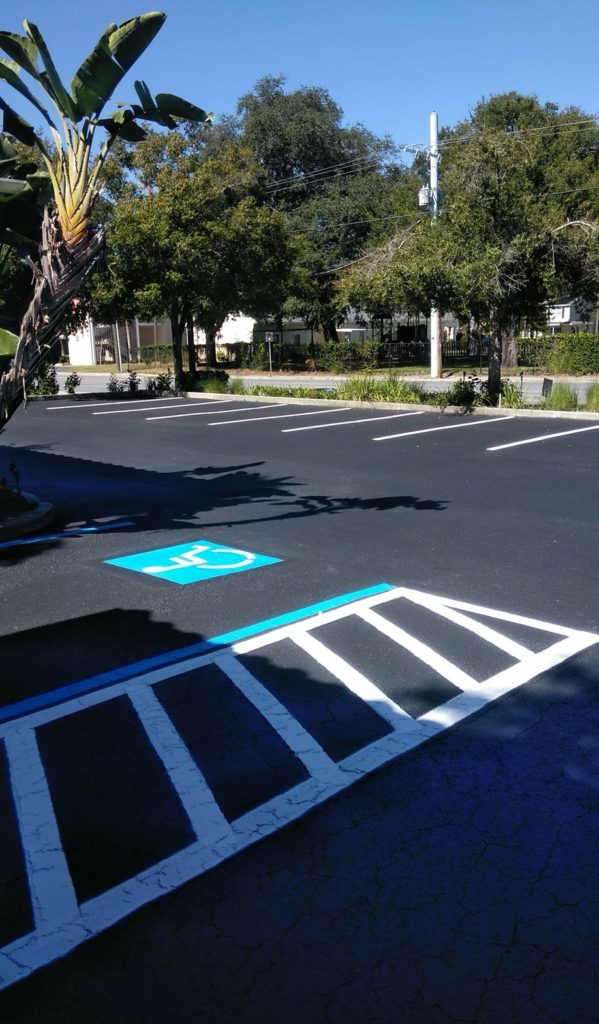Optimize Security with Angle Parking Lot: Superior Asphalt Sealing
Optimize Security with Angle Parking Lot: Superior Asphalt Sealing
Blog Article
Cold Mix Asphalt Vs. Hot Mix Asphalt: Which Is Right for You?

Composition Differences
Cold mix asphalt is produced by emulsifying the asphalt binder with water and an emulsifying agent before mixing it with aggregate. The hot mix asphalt production process involves heating the aggregate and asphalt binder separately before combining them at the asphalt plant.
Furthermore, cool mix asphalt often tends to be much less thick and a lot more versatile than warm mix asphalt. This flexibility makes it far better matched for areas with higher degrees of activity, such as driveways or roadways with hefty web traffic. On the other hand, hot mix asphalt is known for its high sturdiness and resistance to rutting and splitting, making it a favored choice for highways and high-traffic roadways where durability is important.
Setup Process Differences
The process of setting up cool mix and hot mix asphalt shows significant variations in their treatments and requirements. In contrast, hot mix asphalt demands an extra sophisticated setup procedure. Due to the heating requirements, hot mix asphalt installments are generally carried out by specialists with specialized tools, making certain a more long-term and structurally audio outcome.
Sturdiness and Long Life Aspects
When thinking about asphalt alternatives, toughness and durability are important factors to review for long lasting pavement performance. Hot mix asphalt (HMA) is understood for its outstanding durability and durability.
In regards to durability, HMA typically outperforms CMA as a result of its superior stamina and resistance residential properties. HMA pavements have a longer solution life, calling for less constant repair work and upkeep, which can translate to cost financial savings in the future. In addition, HMA pavements are a lot more conveniently customizable to fulfill particular task needs, even more improving their resilience.
Expense Factors To Consider
Considering the financial ramifications is a critical aspect when evaluating the selection between warm mix asphalt (HMA) and cool mix asphalt (CMA) for sidewalk jobs. While the initial price of warm mix asphalt is usually greater than that of cool mix asphalt, HMA usually gives an extra economical remedy in the lengthy run because of its premium durability and long life. HMA is known for its capacity to stand up to hefty web traffic lots and harsh climate condition, reducing the need for regular repair services and maintenance. On the various other hand, cool mix asphalt is more affordable in advance however might need more frequent patching and resurfacing, resulting in higher upkeep expenses in time.
Along with product costs, it's vital to consider the costs connected with setup and upkeep when contrasting HMA and CMA. HMA usually requires specialized tools and competent labor for appropriate installment, which can affect overall task costs. On the other hand, CMA is less complicated to collaborate with and can usually be applied making use of easier strategies, potentially reducing installation costs. Eventually, the decision between HMA and CMA must think about not just the first cost but additionally the long-term economic effects to establish one of the most cost-efficient alternative for the certain pavement project.
Environmental Impact Comparison
Comparison of the environmental influences between try this out hot mix asphalt (HMA) and chilly mix asphalt (CMA) reveals distinctive differences in sustainability practices. HMA manufacturing calls for high temperature levels, leading to enhanced power intake and greenhouse gas discharges.
Moreover, the usage of CMA usually includes reusing existing asphalt pavement, advertising source conservation and lowering the amount internet of waste sent out to garbage dumps. By opting for CMA over HMA, road building and construction projects can contribute positively to environmental preservation initiatives.
Conclusion
To conclude, the option between cold mix asphalt (CMA) and hot mix asphalt (HMA) relies on numerous aspects such as make-up, setup process, durability, long life, price, and ecological impact. cold mix asphalt. While CMA uses a cost-efficient and fast option for small repair work, HMA makes certain premium toughness and durability for rush hour locations. Take into consideration these elements very carefully to determine which sort of asphalt is the right choice for your paving requires

Taking into consideration the financial effects is a crucial facet when assessing the choice between warm mix asphalt (HMA) go to this site and chilly mix asphalt (CMA) for sidewalk tasks. While the first price of warm mix asphalt is generally greater than that of cold mix asphalt, HMA usually offers a more cost-effective option in the lengthy run due to its premium resilience and long life. angle parking.Comparison of the environmental impacts in between warm mix asphalt (HMA) and cold mix asphalt (CMA) reveals distinct differences in sustainability techniques.In verdict, the selection between cool mix asphalt (CMA) and hot mix asphalt (HMA) depends on various variables such as composition, installment procedure, toughness, longevity, expense, and environmental effect
Report this page